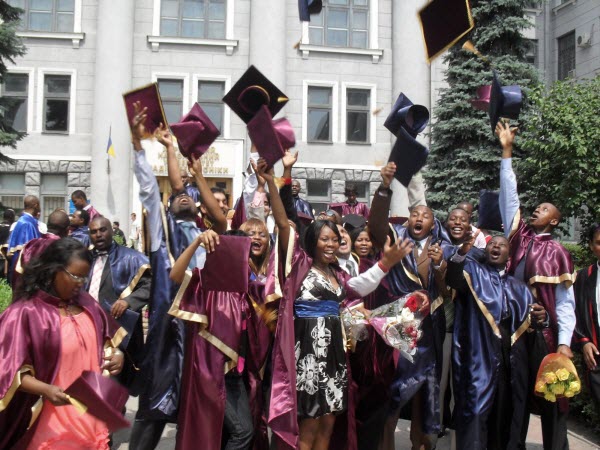There are no products in your shopping cart.
| 0 Items | £0.00 |


AMERICAN foundation the Carnegie Endowment for International Peace (Ceip) has accused members of Nigeria's elites of using the British educational system as a money-laundering shield in the guise of seeking better schooling opportunities for their children.
With Nigerian universities perpetually wracked by industrial action, members of the elite now send their children abroad to get educated. In English-speaking countries like the UK, US and Canada, there are always thousands of Nigerian pupils in their universities and in many schools, they form the largest contingent of foreign students.
In a recent Ceip report written by its non-resident scholar on democracy, conflict and governance, Mathew Page, titled West African Elites’ Spending on UK Schools and Universities: A Closer Look, the actions of Nigerian politicians came under scrutiny. Mr Page is a famous Nigeria expert, author and consultant on Nigeria.
Previously, Mr Page has served as a top Nigeria expert with the US Department of State’s Bureau of Intelligence and Research. He also served the Defense Intelligence Agency, Marine Corps Intelligence and the National Intelligence Council and is a non-resident fellow with the Centre for Democracy and Development in Abuja.
His report was commissioned by the UK government. Catriona Laing, the British High Commissioner to Nigeria, said it was motivated by her government’s desire to better understand the risk to the UK from illicit finance in West Africa.
Ms Laing said: "We will now consider the reports finding and take a view on what if any further action is required. Tackling illicit corruption in Nigeria is critical to the country’s prosperity and security and to addressing poverty and inequality.
"The UK is working in partnership with Nigeria to tackle corruption and illicit finance and has excellent relationships with Nigerian agencies and civil society who are fighting corruption.”
Also, the Carnegie report suggested that colleges and universities in the UK are complicit in the process, saying Britain is still reluctant to acknowledge outside criticism of the sector’s anti-money laundering shortcomings or to derive lessons learned from recent anti-corruption failures. It added that some have even shown a willingness to matriculate students linked to known and even convicted kleptocrats.
In addition, the UK government also got knocks from the report for its policies and programmes seeking to boost the country’s international education sector, which the report said, lack a much-needed anti-corruption component. It argued the case that the increasing reliance on schools in advance countries of the West for the education of their wards expands the disincentives to strengthen their own home educational institutions.
“The capital flight and greater foreign exchange and currency pressures associated with paying costly school and university fees have harmed these countries’ future development and prevented them from correcting deeper socioeconomic inequalities that compound underdevelopment and can even spark violent conflict. While Nigeria’s schools suffer, its corrupt leaders spend millions on UK schools," the reported added.
Ms Laing responded that the UK has a zero-tolerance approach to corruption and remains committed to tackling it wherever it happens, including in the UK education system. She added that the traditional argument by many Nigerian political elites that they accumulated vast wealth before entering politics does not hold water, according to the report based on data, because very few of them would be able to show convincing evidence of how they did so.